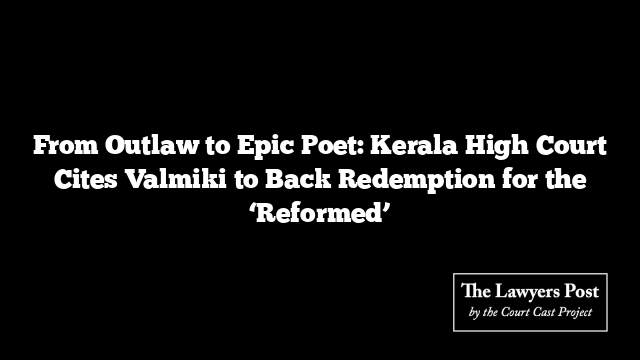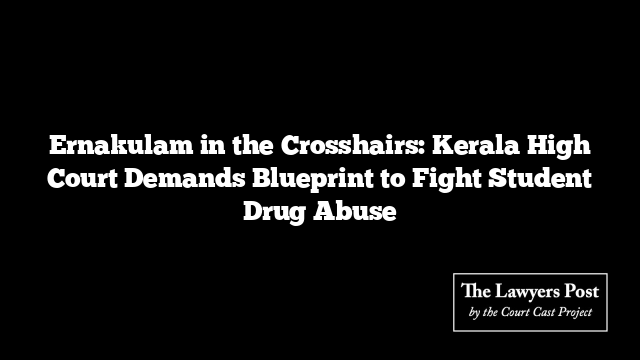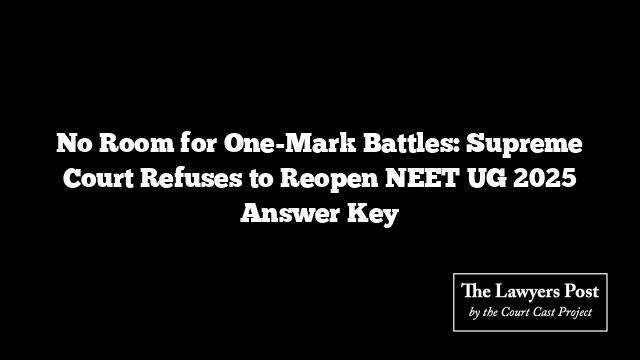In a judgment steeped in philosophy and sharp legal insight, the Kerala High Court has drawn a line between past crimes and present character—arguing that a criminal record should not chain a person indefinitely, especially when signs of reform are genuine and visible.
Justice PV Kunhikrishnan, while deciding a plea filed by a man listed as a rowdy by Fort Kochi Police, pointed out that crime is often the product of social neglect: poor education, unemployment, fractured families, untreated mental health. According to the Court, this societal machinery doesn’t just produce crime—it also holds the tools for redemption.
“We must stop seeing criminals as permanently damaged goods,” the Court said. “Crime is often born from circumstances. But if we create better systems—jobs, education, mental health support—we create the possibility of reform.”
To make this point resonate, Justice Kunhikrishnan invoked the ancient tale of Valmiki. Once a forest brigand who robbed travellers to feed his family, Valmiki transformed after a moment of spiritual reckoning. The same man would go on to compose the Ramayanam, one of Hinduism’s greatest epics. “A criminal need not always remain one. A rowdy can walk a different path,” the Court noted.
The man at the center of the case had not been charged with any crime in over eight years. He claimed to have changed his ways—holding a steady job, steering clear of past associates, staying involved in church life. Except for one pending trial in which he is the eighth accused, he had been acquitted in all other matters.
The State pushed back, arguing his links to unsavory elements remained. But the Court was unconvinced and ruled in the petitioner’s favor, ordering his removal from the rowdy list.
However, the Court walked a careful line—emphasizing that this chance is a privilege, not a blank check. “This Court believes in your reformation,” the judge told the petitioner in effect, “but society is watching.”
Justice Kunhikrishnan also revisited his own 2023 ruling that allowed temporary parole for Ripper Jayanandhan—a man convicted of multiple murders—to attend the launch of a book he had written in prison. “That person may not be fully reformed,” he remarked, “but he is on the road.”
On privacy concerns, the Court clarified that rowdy lists are not meant to be pinned on police station notice boards like a rogues’ gallery. Instead, they are for internal police use, away from public view—ensuring that even those with a criminal past retain their dignity and privacy.
In the end, the judgment delivered more than a ruling—it offered a reflection: if society has the power to shape criminals, it must also bear the responsibility of helping them unmake themselves.





